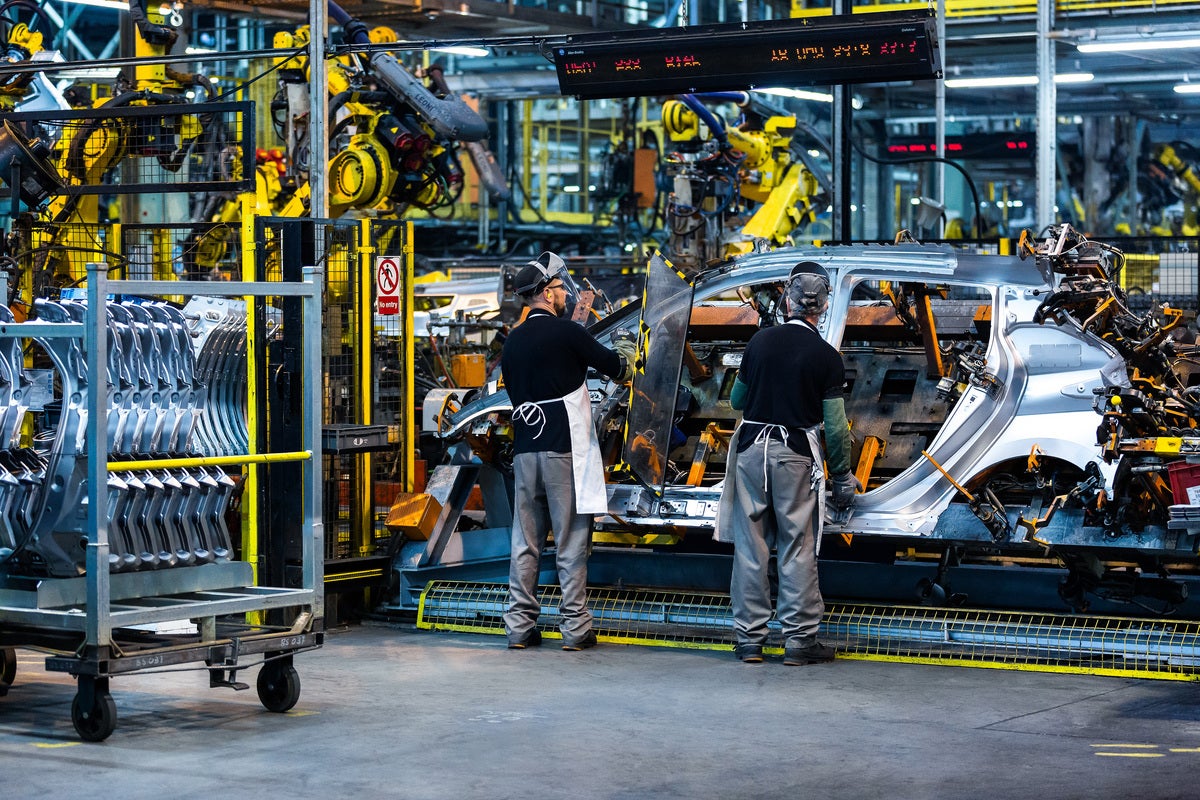
UK car production fell 28.7% in November to 75,756 units, according to the latest figures released today by the Society of Motor Manufacturers and Traders (SMMT).
It was the fifth consecutive month of decline and represents the lowest November output performance since 1984 as UK car makers continued to be hit by the worldwide shortage of semiconductors.

Discover B2B Marketing That Performs
Combine business intelligence and editorial excellence to reach engaged professionals across 36 leading media platforms.

The figures also reflect the loss of output arising from the closure of a UK car factory in the summer (Honda Swindon), a situation that will impact year-on-year comparisons until July 2022.
In November production for both domestic and overseas markets declined, down 18.8% and 30.4% respectively, as 30,487 fewer cars rolled off factory lines. Exports accounted for more than 80% of all cars produced last month. Some 60% cars shipped overseas in November headed into Europe; Asia took 15.6% of UK car exports, the US 13.4% and Australia 1.2%.

Continuing the recent trend, British production of battery electric, plug-in hybrid and hybrid cars took a record share of production, accounting for around a third (32.7%) of all cars made in the month, and more than a quarter (25.5%) over the year-to-date. Battery electric vehicle (BEV) output was up in November by 52.9% to 10,359 units, hitting a new high of 13.7% of all production, more than double the level a year ago.
Year-to-date, UK car plants have turned out 797,261 units, some 432,794 less than pre-pandemic 2019 and 667,441 off the five-year pre-Covid average for the period of 1,464,702 cars.
Mike Hawes, SMMT Chief Executive, described the latest figures as worrying and sounded a note of warning over new customs arrangements between the UK and EU that will apply from January 1st 2022. He said: “These are incredibly worrying figures, underscoring the severity of situation facing the automotive industry. Covid is impacting supply chains massively, causing global shortages – especially of semiconductors – which is likely to affect the sector throughout next year.
“With an increasingly negative economic backdrop, rising inflation and Covid resurgent home and abroad, the circumstances are the toughest in decades. With output massively down for the past five months and likely to continue, maintaining cashflow, especially in the supply chain, is of vital importance. We have to look to government to provide support measures in the same way it is recognising other Covid-impacted sectors.
“The industry is as well prepared as it can be for the implementation of full customs controls at UK borders from 1 January but any delays arising from ill-prepared freight or systems will place further stress on businesses that operate ‘just in time’. Should any problems arise, contingency measures must be implemented immediately to keep cross border trade flowing smoothly.”
Responding to the latest SMMT UK car manufacturing data, Richard Peberdy, UK head of automotive at KPMG, said: “Frustratingly for manufacturers and consumers alike, 2022 will start with the same supply shortages that have limited production throughout 2021.
“Despite investment going into increasing chip production, the backlog of demand for the variety of sectors and goods that require them means that supply challenges will persist in the automotive industry throughout 2022, albeit these will probably ease as the year goes on.
“As component supply issues ease, production will increase to meet pent-up vehicle demand. But I’d argue that we are entering a ‘new normal’ for car manufacturing and we won’t again see the levels of over-production and discounting that we did pre-pandemic. Instead, manufacturers will focus volume on more profitable vehicles and markets. Demand will change too and in light of sustainability concerns and hybrid working, consumers will be rethinking what they drive and how they access and pay for mobility more widely.”






